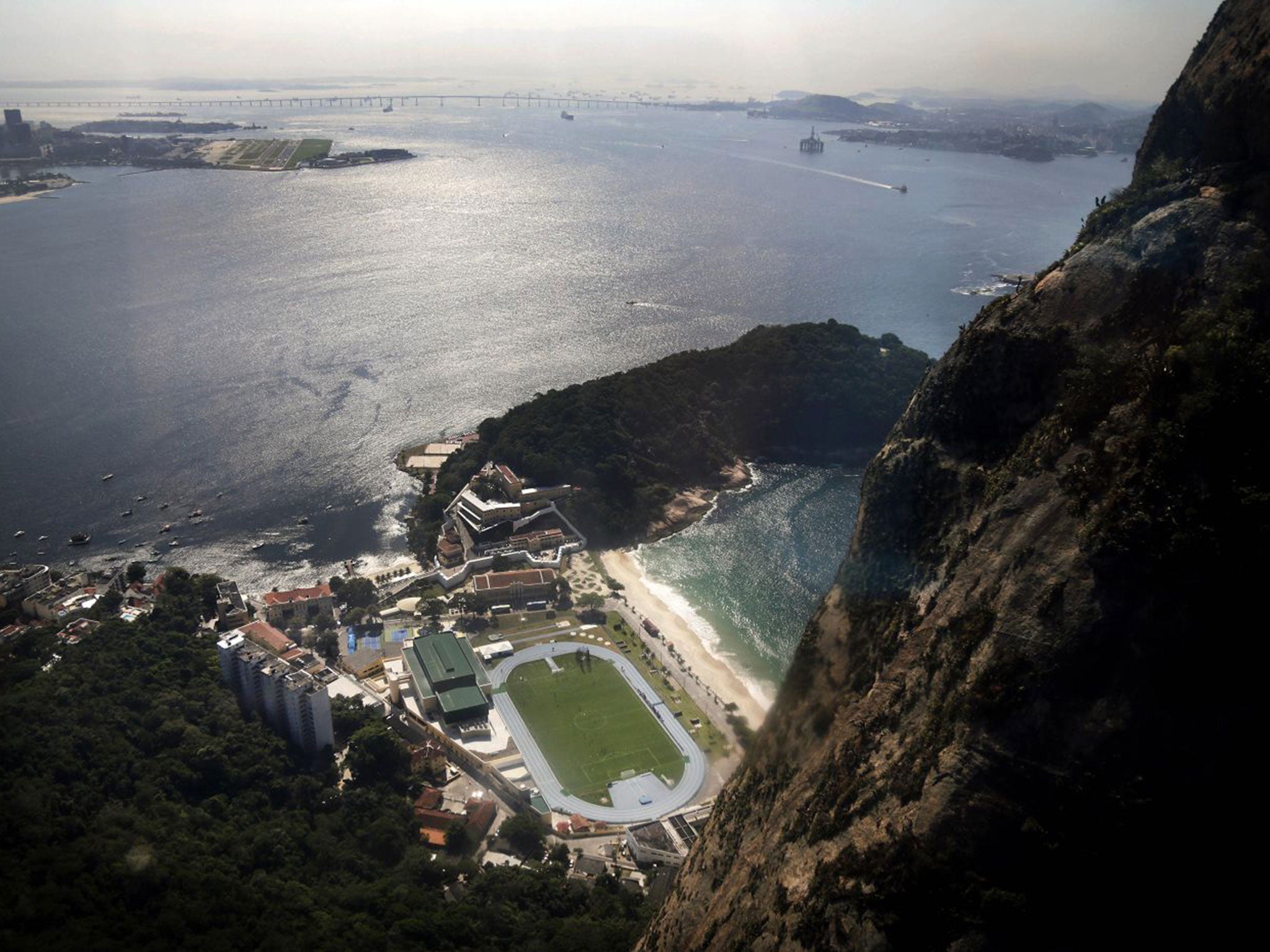Olympic Games 2016: 'Super bacteria' found in waters off Rio where events are planned, studies say
The drug resistant microbes can cause complex urinary, gastrointestinal, pulmonary and bloodstream infections

Drug resistant “super-bacteria” have been found off Rio de Janeiro’s Olympic-designated beaches, according to two yet-to-be-published studies.
In one location, 100 per cent of water samples were found to contain the powerful microbes, Reuters reported.
The findings will likely add further scrutiny to Brazil’s preparations for the Olympics which begin in August, but have been marred by some serious shortcomings in recent months.
The waters off Rio were supposed to have been cleaned up in preparation for the Games. But in two separate studies of waters intended to be used for Olympic events, the hazardous microbes have been found by scientists.
Superbugs were found just off the world famous Copacabana beach, where open-water and triathlon swimming competitions will take place. Superbugs were also identified at Ipanema, Leblon, Botafogo and Flamengo beaches, the first study by researchers from Rio’s federal university showed.
Using 10 samples taken at five beach locations, the study found super bacteria were most present at Botafogo beach, where all samples collected tested positive for super bacteria.
Flamengo beach, where spectators will gather to watch Olympic sailors vie for medals, had the super bacteria in 90 per cent of water samples. Ten per cent of Copacabana's samples had the microbes.
Ipanema and Leblon beaches, the most popular with tourists, had samples that tested positive for super bacteria 50 per cent and 60 per cent of the time, respectively.
Inside the city, the Rodrigo de Freitas lagoon – which will host canoe and rowing events - was also found be host to genes of super bacteria, according to the second study by the Oswaldo Cruz Foundation. The study is based on water samples taken in 2013 and found the lake was a potential breeding ground for super bacteria.
Renata Picao, lead researcher of the first study, said the contamination of Rio’s famous beaches was the result of a lack of basic sanitation in the metropolitan area of 12 million people.
"These bacteria should not be present in these waters. They should not be present in the sea," said Ms Picao from her lab in northern Rio, itself enveloped by the stench from Guanabara Bay.
While the studies both used water samples that are from 2013 and 2014, Ms Picao and other experts said they had seen no advances in sewerage infrastructure in Rio to improve the situation.
The super bacteria are of varying levels of danger to different individuals, depending on the immune system. However, they have the potential to cause hard-to-treat urinary, gastrointestinal, pulmonary and bloodstream infections, along with meningitis.
They can also infect also otherwise-harmless bacteria present in the waters, turning them into antibiotic-resistant germs.
Rio’s Olympic organising committee referred questions on water quality to state authorities.
Inea, the state environmental agency, said in a statement it follows the World Health Organisation's recommendations for testing recreational water safety, and searching for super bacteria is not included in that. It also said there was a lack of studies about the bacteria in water and health outcomes.
Reuters contributed to this report
Join our commenting forum
Join thought-provoking conversations, follow other Independent readers and see their replies
Comments